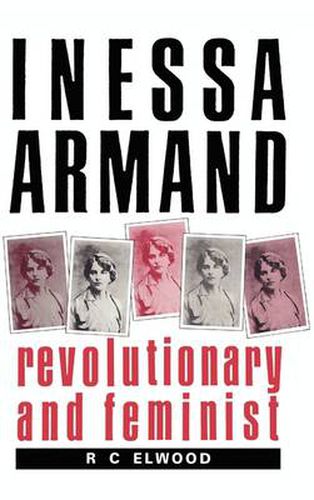Readings Newsletter
Become a Readings Member to make your shopping experience even easier.
Sign in or sign up for free!
You’re not far away from qualifying for FREE standard shipping within Australia
You’ve qualified for FREE standard shipping within Australia
The cart is loading…






Inessa Armand was the first Director of the Women’s Section of the Russian Communist Party (the Zhenotdel). She was one of the most important women in the pre-revolutionary Bolshevik Party, and second only to Aleksandra Kollontai in the ranks of early Soviet feminists. Yet if Armand is mentioned at all in Western literature, it is solely as Lenin’s protegee and probable mistress. In this political biography of Armand, the first to appear in English, Professor R. C. Elwood seeks to correct this picture by portraying her as an accomplished revolutionary propagandist and Bolshevik organizer before 1917 and as a feminist who devoted much of her life to defending women’s interests in the home, in the workplace and in society. Based on unpublished police reports, memoirs. Armand’s letters to her five children and two husbands, and Lenin’s 118 published letters to her, this study provides new and revealing information on her upbringing in the wealthy Armand family, on the revolutionary sympathies of many members of that family, on their subsequent and controversial financial support of the Bolshevik Party, and on her career as a Tolstoyan and feminist long before she became a revolutionary.
$9.00 standard shipping within Australia
FREE standard shipping within Australia for orders over $100.00
Express & International shipping calculated at checkout
Inessa Armand was the first Director of the Women’s Section of the Russian Communist Party (the Zhenotdel). She was one of the most important women in the pre-revolutionary Bolshevik Party, and second only to Aleksandra Kollontai in the ranks of early Soviet feminists. Yet if Armand is mentioned at all in Western literature, it is solely as Lenin’s protegee and probable mistress. In this political biography of Armand, the first to appear in English, Professor R. C. Elwood seeks to correct this picture by portraying her as an accomplished revolutionary propagandist and Bolshevik organizer before 1917 and as a feminist who devoted much of her life to defending women’s interests in the home, in the workplace and in society. Based on unpublished police reports, memoirs. Armand’s letters to her five children and two husbands, and Lenin’s 118 published letters to her, this study provides new and revealing information on her upbringing in the wealthy Armand family, on the revolutionary sympathies of many members of that family, on their subsequent and controversial financial support of the Bolshevik Party, and on her career as a Tolstoyan and feminist long before she became a revolutionary.